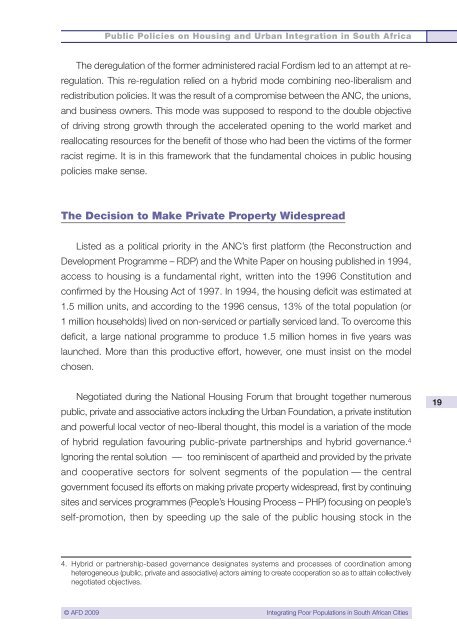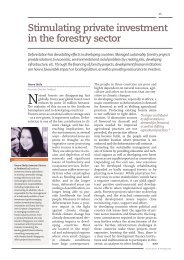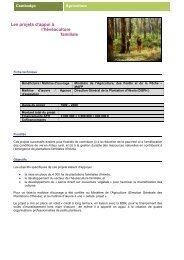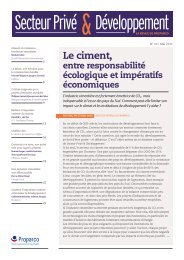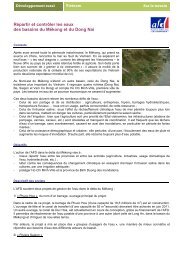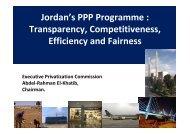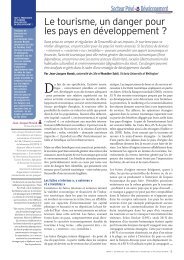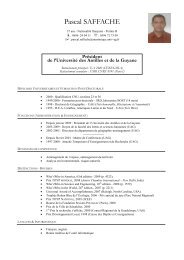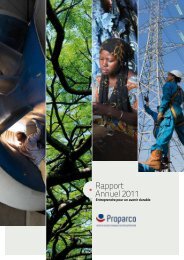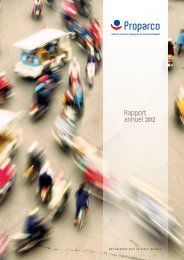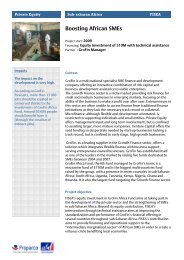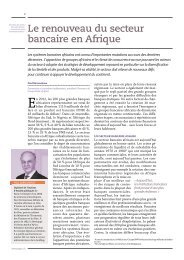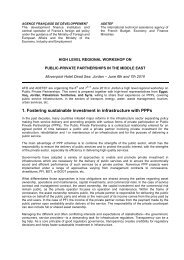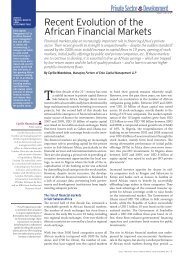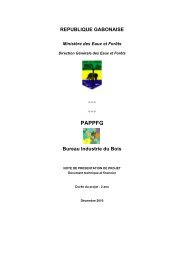Integrating Poor Populations in South African Cities - Agence ...
Integrating Poor Populations in South African Cities - Agence ...
Integrating Poor Populations in South African Cities - Agence ...
Create successful ePaper yourself
Turn your PDF publications into a flip-book with our unique Google optimized e-Paper software.
Public Policies on Hous<strong>in</strong>g and Urban Integration <strong>in</strong> <strong>South</strong> Africa<br />
The deregulation of the former adm<strong>in</strong>istered racial Fordism led to an attempt at reregulation.<br />
This re-regulation relied on a hybrid mode comb<strong>in</strong><strong>in</strong>g neo-liberalism and<br />
redistribution policies. It was the result of a compromise between the ANC, the unions,<br />
and bus<strong>in</strong>ess owners. This mode was supposed to respond to the double objective<br />
of driv<strong>in</strong>g strong growth through the accelerated open<strong>in</strong>g to the world market and<br />
reallocat<strong>in</strong>g resources for the benefit of those who had been the victims of the former<br />
racist regime. It is <strong>in</strong> this framework that the fundamental choices <strong>in</strong> public hous<strong>in</strong>g<br />
policies make sense.<br />
The Decision to Make Private Property Widespread<br />
Listed as a political priority <strong>in</strong> the ANC’s first platform (the Reconstruction and<br />
Development Programme – RDP) and the White Paper on hous<strong>in</strong>g published <strong>in</strong> 1994,<br />
access to hous<strong>in</strong>g is a fundamental right, written <strong>in</strong>to the 1996 Constitution and<br />
confirmed by the Hous<strong>in</strong>g Act of 1997. In 1994, the hous<strong>in</strong>g deficit was estimated at<br />
1.5 million units, and accord<strong>in</strong>g to the 1996 census, 13% of the total population (or<br />
1 million households) lived on non-serviced or partially serviced land. To overcome this<br />
deficit, a large national programme to produce 1.5 million homes <strong>in</strong> five years was<br />
launched. More than this productive effort, however, one must <strong>in</strong>sist on the model<br />
chosen.<br />
Negotiated dur<strong>in</strong>g the National Hous<strong>in</strong>g Forum that brought together numerous<br />
public, private and associative actors <strong>in</strong>clud<strong>in</strong>g the Urban Foundation, a private <strong>in</strong>stitution<br />
and powerful local vector of neo-liberal thought, this model is a variation of the mode<br />
of hybrid regulation favour<strong>in</strong>g public-private partnerships and hybrid governance. 4<br />
Ignor<strong>in</strong>g the rental solution — too rem<strong>in</strong>iscent of apartheid and provided by the private<br />
and cooperative sectors for solvent segments of the population — the central<br />
government focused its efforts on mak<strong>in</strong>g private property widespread, first by cont<strong>in</strong>u<strong>in</strong>g<br />
sites and services programmes (People’s Hous<strong>in</strong>g Process – PHP) focus<strong>in</strong>g on people’s<br />
self-promotion, then by speed<strong>in</strong>g up the sale of the public hous<strong>in</strong>g stock <strong>in</strong> the<br />
19<br />
4. Hybrid or partnership-based governance designates systems and processes of coord<strong>in</strong>ation among<br />
heterogeneous (public, private and associative) actors aim<strong>in</strong>g to create cooperation so as to atta<strong>in</strong> collectively<br />
negotiated objectives.<br />
© AFD 2009 <strong>Integrat<strong>in</strong>g</strong> <strong>Poor</strong> <strong>Populations</strong> <strong>in</strong> <strong>South</strong> <strong>African</strong> <strong>Cities</strong>


